
The First Colorado Cycling Summit
Cycling Season is here, and so is a long list of epic rides throughout the state and surrounding states. Are you ready? Join Avid Cyclist, and other co-hosts for the
By Kate Agathon
Imagine the thrill of riding a fixed gear bike with no freewheel or brakes on a steeply angled surface at speeds reaching 50 mph. Just you and your bike pushing the limits of speed- the ultimate flow state.
Welcome to the world of competitive track cycling- a sport that initially sounds dangerous, but is actually one of the safest environments to get your competitive cycling groove on. Within the safety of the velodrome, track cyclists can indulge in the need for speed without worrying about traffic, pedestrians, or unexpected obstacles, such as potholes.
“In my opinion, it (track cycling) is the purest form of bike racing,” said track cyclist Jim Lawrence, 55.
“Anyone, in any discipline, can benefit from training and racing at the track. We have athletes who come out simply to maintain physical fitness, and others who are there to develop as the top track athletes in the world,” he continued.
A place to excel
 In Colorado, the future of and accessibility to track cycling is critical to the reopening of the Boulder Valley Velodrome (BVV) in Erie. Just ask the Colorado Springs-based Lawrence and his family.
In Colorado, the future of and accessibility to track cycling is critical to the reopening of the Boulder Valley Velodrome (BVV) in Erie. Just ask the Colorado Springs-based Lawrence and his family.
Himself a 13 time national champion (11 Masters and 2 Para- piloting a BVI [blind/visually impaired] tandem) and two time world record holder in the Flying 200 (the UCI calls it a “Best Performance” for any age restricted category), Lawrence loves the thrill of track cycling and has shared his enthusiasm with his family and the youth whom he coaches.
The combination of competitiveness, speed and safety is largely what attracts them to track cycling.
“Safety is a high priority, and everyone is required to learn how to ride the track safely before they are allowed on. The fastest elite riders in the world can ride at the same time as the younger junior riders, and everything is fine. There is no threat from distracted drivers, dogs off leash, or a tree jumping into the middle of the trail,” explained Lawrence.
At a time when gravel biking is attracting an increased number of road bicyclists (many citing safety concerns) and dwindling participation is threatening road racing along the Front Range, track cycling offers a refreshing alternative.
“If someone is from another discipline, track riding develops many skills that are useful, including bike handling, leg speed and power production. It also helps to develop those skills more quickly, because everything on the track is compressed,” Lawrence added.
“Anyone, at any level, in any discipline, can unlock more power, better tactics, and greater fitness at the track. And they might even decide to focus on track, because it is so much fun!” he said.
Track cycling unifies
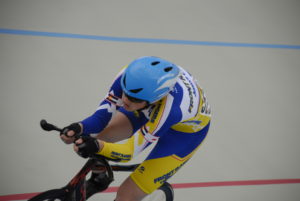 Helping to save the BVV -one of two in the entire state- is a cause of utmost importance to Lawrence and his family.
Helping to save the BVV -one of two in the entire state- is a cause of utmost importance to Lawrence and his family.
His wife, Rebecca, is a one time Masters National Champion. Their daughter, Stephanie, 20,
is the current and two-time Collegiate National Sprint Champion, is a former Elite National Champion in Team Pursuit, was 3rd in the Sprints at Elite Nationals last year, and has been on multiple podiums at UCI events this year.
Their older children Victoria, 26, and Alex, 23, also raced as juniors. Victoria will resume racing again this summer.
As competitors, family, and coaches, they all have spent time racing, training, and cheering one another on at the BVV.
Reopening the BVV presents a realm of opportunities not just for the family, but for the youth that they coach in track cycling- the sport’s future stars.
Lawrence remarked, “My wife and I still compete at the Masters level, and are planning to race both the National and World Championships this year. The track being closed for the past 3 years has destroyed the junior track program. Most of the kids who were active have aged out of the program, and we obviously haven’t been able to bring new kids in.”
Saving the BVV
For five years, the BVV was the site of several memorable occasions that went down in Lawrence family lore.
“We have a lot of memorable moments from racing up there, including some of the kids competing for the first time, kids winning state, my wife and I getting to train and race with some of the fastest masters and elite riders in the world, and hanging out with them in between efforts,” Lawrence reminisced.
One year, the BVV hosted the Dutch National team and his daughter was invited to ride with them while they were in town.
Before its closure in 2019, the BVV served as a training ground for Olympians, club teams, families such as the Lawrences, and track cyclists new to the sport.
Finally, in April 2023, it was announced that the BVV will be operated by the Team Colorado Cycling nonprofit and restored and reopened as a cyclist training ground and location for community events.
A Cycling Treasure
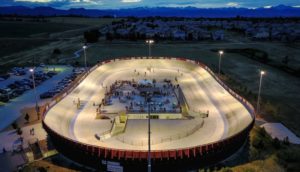
The BVV itself has a special place among velodromes.
When construction began on the BVV in 2011-12, University Bicycles founder Doug Emerson and his business partner, Frank Banta, ensured that their very specific design standards were implemented.
First of all, the wood cycling track had to be 250 meters- the standard track length for Olympic events. Secondly, the track mimicked the one used during the 2012 London Olympics, pitched at 41.5 degrees on the turns and 11.5 degrees on the straightaways. Finally, the track was coated with Sikkens gritted deck paint to make the track more grippy for bike wheels.
Designed by renowned track architect Peter Junek, the 250-spectator BVV is a structural marvel.
In fact, out of 26 velodromes in the United States, the BVV is one of less than five tracks that meet international racing and Olympic standards, and one of only two (the other is in Carson, California) wood tracks of that length in the entire country.
From the beginning, those in the track cycling community recognized its enormous potential. Founding members of the velodrome include notable local cyclists Taylor Phinney, Colby Pearce, and Cari Higgins (who later would lead efforts to save the Velodrome).
Despite its vaunted design and ideal location, the BVV seemed to be doomed from the onset.
2013, its inaugural year, was a catastrophe.
One week before opening, a tornado destroyed 70m of the track. Later, lightning struck the same spot after repairs had been completed. That September, Boulder County received more than a year’s worth of rainfall in a week and floods wreaked havoc on the property.
Two years later, the destruction caused by yet another tornado-level wind event seemed to demonstrate that the BVV was a magnet for natural disasters.
In 2019, the global pandemic was the final nail in the proverbial coffin. Prompted by the COVID-19 outbreak, the BVV shut down operations in October, and it fell into disrepair.
One year later, a group of cycling enthusiasts rallied to launch a campaign to restore the velodrome through fundraising, sponsorships, and volunteers.
From board-by-board repair, to track bike fleet tuning and repair, the list of repairs after years of neglect is extensive. In April of 2023, Team Colorado Cycling launched a GoFundMe campaign that, as of publication date, has raised $60,849 of its $75,000 goal.
Looking Towards the Future
The Lawrence family have made the trip up to Erie a couple of times to assist with the BVV’s restoration.
“So far, my wife, daughter and I have volunteered at 7 time slots to help. We cleaned the main room, which had become infested with whatever small animals didn’t want to live outside in the cold Colorado winters. We scrapped the old paint, to prepare for the new paint on the track surface. We also removed old boards from the surface, so they can be replaced,” Lawrence maintained.
For them, the long drives and the hours of hard labor are worth it. Restoring the BVV ensures the future of track racing and preserves its unique culture.
“There are a few good reasons to restore the track. First, it’s a great place for anyone to train. Families, groups, and teams can all ride together and whoever is fastest can never be more than 125 meters from the slowest,” Lawrence remarked.
“Second, it’s a great community. We had everyone from 10-year-olds up to riders in their 70s training and racing up there,” he continued.
“Third, the 250 meter track is the international standard. All high level races are contested on a 250. If you include BVV, there are only a handful of 250 meter tracks in the country. Training for fitness and fun is great on any size track, but if you want to develop the higher caliber athlete, they need access to a 250,” he finished.
A Supportive Community
Having access to train in a velodrome and meeting like-minded athletes is critical to the future of the sport.
athletes is critical to the future of the sport.
Although Colorado Springs is home to the U.S. Olympic Training Center Velodrome, access is limited to the public. In contrast, the BVV was open to all.
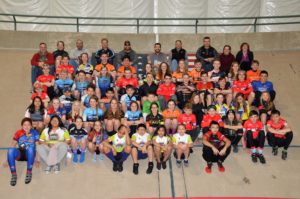 While the local track was critical to their development, so were the frequent trips to BVV for more racing and time on a 250m track. There, Lawrence maintained, the youth also benefited from being around “track people.”
While the local track was critical to their development, so were the frequent trips to BVV for more racing and time on a 250m track. There, Lawrence maintained, the youth also benefited from being around “track people.”
The tight-knit track cycling community is surprisingly diverse, with riders of all ages and skill levels training and racing together.
“It (track cycling) is a great community! Everyone is fiercely competitive when racing, but extremely helpful and friendly with each other and new riders. It is a unique camaraderie that I think is track cycling specific,” Lawrence exclaimed.
“From the old-timers (you know who you are) passing on the traditions, to the kids they race against, to being welcoming to the out-of-towners, we always had a great experience at BVV,” he concluded.
 For more information on the restoration of the BVV, visit here. Volunteers can sign up for three hour shifts on the BVV website.
For more information on the restoration of the BVV, visit here. Volunteers can sign up for three hour shifts on the BVV website.
Photo Credits: Victoria Lawrence, Boulder Valley Velodrome

Cycling Season is here, and so is a long list of epic rides throughout the state and surrounding states. Are you ready? Join Avid Cyclist, and other co-hosts for the
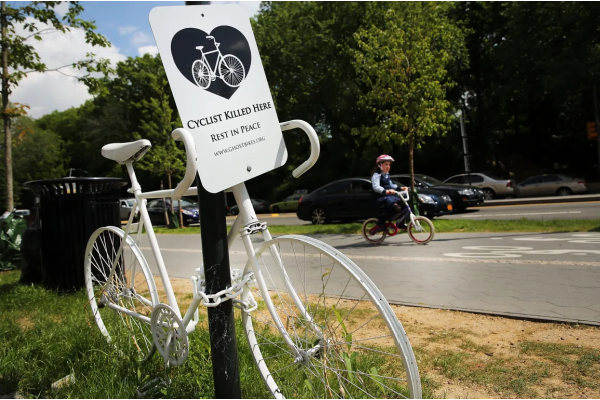
By: Brad Tucker I have been practicing law for over thirty-five years, the majority of which has included representing bicyclists who have been hit by drivers who disregarded the safety

April 8, 2025 Propelled by the powerful stories of victim families, SB25-281 includes new mandatory chemical testing clause BOULDER, CO /ENDURANCE SPORTSWIRE/ – The White Line, founded in memory of 17-year-old

Boulder, Colorado- After a week long trial, late Friday evening, a Boulder County jury found Yeva Smilianska guilty of Vehicular Homicide-Reckless Driving in the death of Magnus White. The jury,
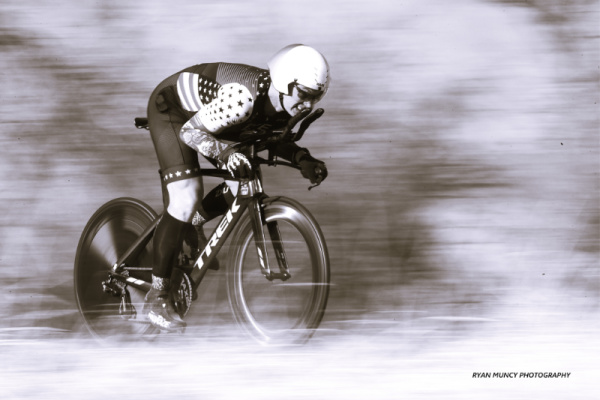
The 2025 Karen Hornbostel Memorial Time Trial Series p/b Cobras Cycling Team has entered its second week! Ryan Muncy of Ryan Muncy Photography was there to capture images of a chilly afternoon. Make
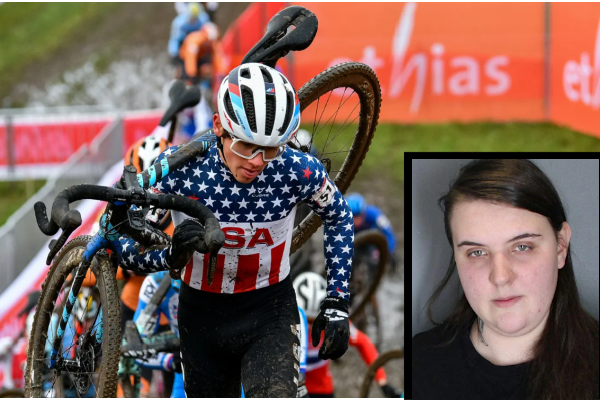
By: Gary Robinson, Avid Cyclist Jury selection began Monday morning for the suspect driver accused of striking and killing Colorado teen cyclist Magnus White near his home in Boulder. Yeva